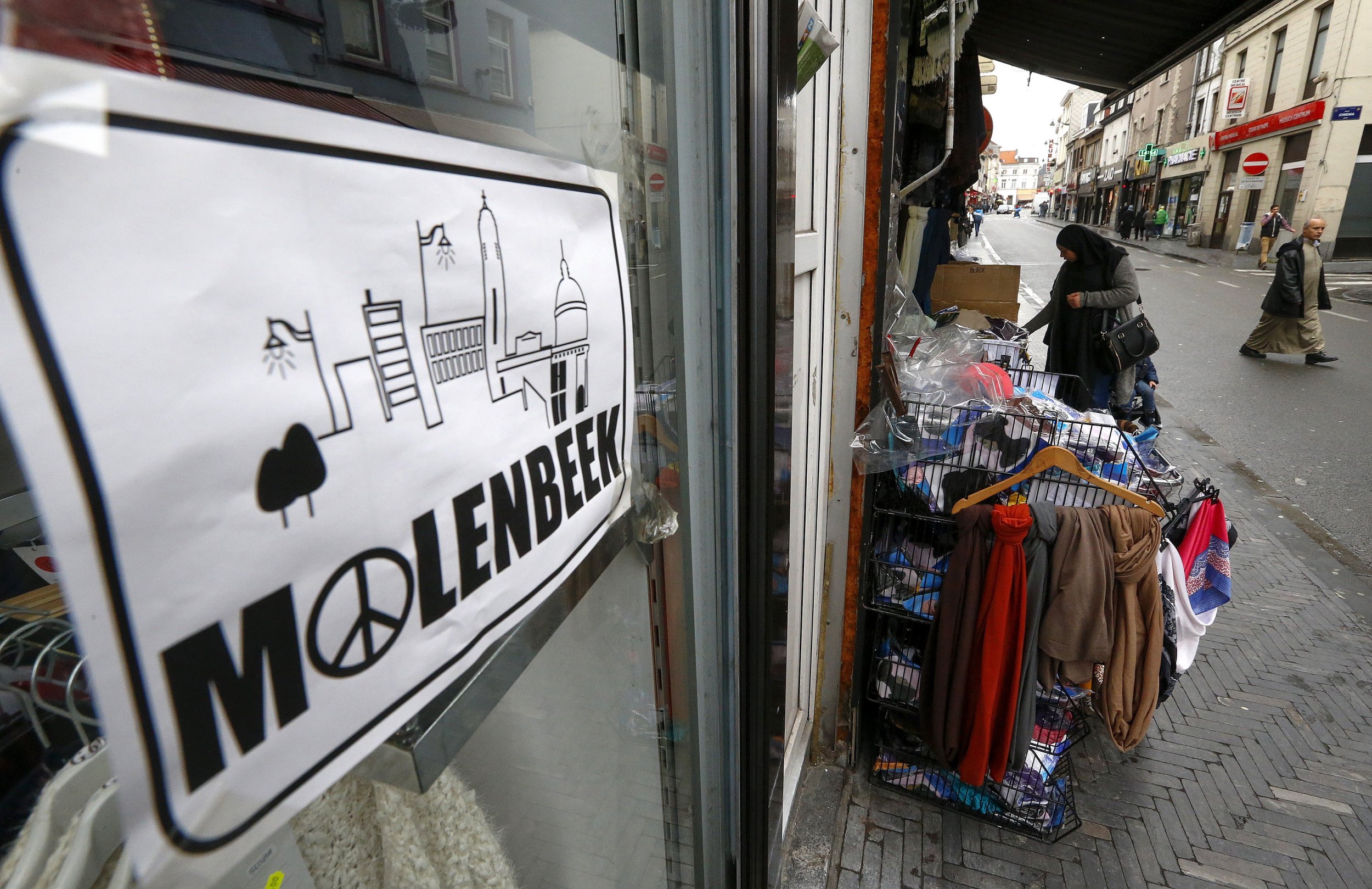
A toxic mix of Salafi-jihadism combined with high numbers of foreign fighters and assault rifles has seen Belgium become an important base for radicals to launch attacks in Europe.
The investigation into the Paris attacks has thrown a spotlight on Belgium's own jihadi problem. Three of the attackers, Bilal Hadfi, Ibrahim Abdesalam and Salah Abdesalam, were all based there prior to the attacks in Paris, while two of the vehicles used in the coordinated attacks were hired in the country.
Belgian authorities have been increasingly concerned over the growing threat of domestic jihadi violence since the Charlie Hebdo attack in January. Amedy Coulibaly, the gunman behind the attack on a Parisian Jewish grocery store in January, obtained weapons used by himself and the Kouachi brothers through connections in Brussels.
Parts of Belgium have surprisingly lax gun controls. The suburb of Molenbeek is notorious for a black market in assault weapons, blamed on smugglers who used the Yugoslavia conflict to build a considerable armory.
Molenbeek also has a strong history of jihadi activity. One of the men jailed for the 2004 Madrid train bombings was from Molenbeek, while Ayoub el-Khazzani, the Moroccan who attempted to open fire on a Paris-bound train in August before being tackled to the ground by bystanders, is believed to have lived there for a time.
The area has a strong Salafi presence, attributable in part to Saudi Arabia's construction of mosques and the influence of gulf-trained clerics in the largely Moroccan municipality. The deputy mayor of Molenbeek, Ahmed El Khannouss, says it is not in the area's 22 mosques but rather the more informal network of Salafi meeting places and prayer sites where radicalism is suspected to thrive.
The Islamic State militant group, known as ISIS, has recruited successfully in Belgium, and it has proportionally the highest number of foreign fighters traveling to Iraq and Syria, with current estimates standing at over 500. Official estimates from the Belgian government believe that around 120 of those have now returned to Belgium, and recent events suggest some may remain committed to violent jihad once home.
Many Belgian foreign fighters are linked to Sharia4Belgium, a group originating in Antwerp that recruits young people to fight in Syria and advocates for the imposition of domestic Sharia, Islamic law.
Their leader, Fouad Belkacem, was imprisoned for 12 years earlier this year. His trial found that members the group not only went to fight with ISIS in Syria but also for the Nusra Front, Al-Qaeda's Syrian affiliate, as well as jihadi groups in Yemen. The judge specifically cited Belkacem's influence "for the radicalization of young men to prepare them for Salafist combat."
This variety of different jihadi groups' presence in Belgium was demonstrated by nationwide raids in June 2015. Police arrested 16 people following intelligence reports about an attack on Belgian soil. Among those arrested were suspects with links to Al-Qaeda affiliates Jabhat al-Nusra and the Islamic Caucasus Emirate, and who had traveled to Syria, Iraq and Afghanistan to receive training.
The overlap of groups isn't surprising. A recent report by the Centre on Religion & Geopolitics, "Inside the Jihadi Mind," demonstrates the underlying shared Salafi-jihadi ideology of Al-Qaeda and ISIS, at the heart of both of these groups. In their propaganda, Salafi-jihadi groups specifically emphasize the fact that countries like Belgium contributing to the war effort in Syria are taking part in a "war against Islam."
Abdelhamid Abaaoud, said to be the leader of the Paris attacks, is an ISIS militant and was interviewed in an issue of the group's English-language propaganda magazine Dabiq. He described Belgium as being a "member of the crusader coalition attacking the Muslims," and he said he and his accomplices were able to return from Syria to Belgium, obtain weapons and set up a safe-house as they sought to carry out attacks.
The ideology of Salafi-jihadism is distinct from the Islam practiced by the majority of the world's Muslims, yet is built upon Islamic religious principles, which it distorts to produce a single-minded focus on violent jihad. Because of its ultraviolence and concerted propaganda effort, ISIS is the latest force to capture the headlines.
But Belgium's long association with jihadism shows the ideology and number of groups involved goes even deeper. The focus on ISIS and the Belgian links to the Paris attacks overshadows the bigger issue; the spread and incubation of the Salafi-jihadi ideology.
Though welcome, the dismantling of ISIS alone in Belgium, or the rest of Europe for that matter, will be dealing with only a symptom, not the root cause of the problem.
Milo Comerford is an analyst at the Centre on Religion & Geopolitics.
Uncommon Knowledge
Newsweek is committed to challenging conventional wisdom and finding connections in the search for common ground.
Newsweek is committed to challenging conventional wisdom and finding connections in the search for common ground.
About the writer
To read how Newsweek uses AI as a newsroom tool, Click here.








